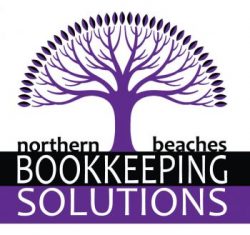Scam calls targeting small businesses are becoming increasingly common, with fraudsters posing as the ATO, banks, or other government agencies. These calls often threaten legal action, demand payments, or request sensitive information. Knowing how to spot a scam call can protect your business from financial loss and identity theft.
What Are Scam Calls?
Scam calls involve fraudulent callers pretending to be legitimate organisations, such as the ATO, utility companies, or financial institutions. Their goal is to deceive business owners into providing sensitive information, making payments, or granting access to business accounts.
Common Types of Scam Calls Targeting Small Businesses
Scammers use various tactics to trick businesses. Some of the most common types of scam calls include:
- Fake ATO Calls: Scammers claim you owe a tax debt and demand immediate payment to avoid legal action.
- Invoice Payment Scams: Fraudsters pose as suppliers or vendors and request payment for fake invoices.
- Utility Scams: Callers threaten to disconnect electricity, water, or gas if immediate payment is not made.
- Bank Verification Scams: Scammers ask for account details under the guise of verifying bank information.
Red Flags of a Scam Call
Scam calls often share common warning signs. Be cautious if the caller:
- Demands immediate payment or threatens legal action
- Requests sensitive information, such as bank account or TFN
- Uses aggressive or threatening language
- Asks for payment via unusual methods, such as gift cards or wire transfers
- Refuses to provide contact information or a call-back number
How to Verify a Legitimate Call
If you receive a suspicious call claiming to be from the ATO or another organisation, follow these steps to verify its legitimacy:
- Ask for the caller’s name, department, and contact number.
- Hang up and call the official number of the organisation to verify the request.
- Never provide sensitive information over the phone without verifying the caller’s identity.
- Visit the ATO’s Verify or Report a Scam page to check for recent scam alerts.
What to Do If You Receive a Scam Call
If you suspect a call is a scam, take the following steps:
- Do Not Engage: Hang up immediately without providing any information.
- Report the Call: Notify the ATO or relevant authority about the scam call.
- Monitor Accounts: Check bank statements for unauthorised transactions.
- Educate Staff: Inform employees about common scam tactics and how to respond safely.
Protecting Your Business from Scam Calls
To reduce the risk of falling victim to scam calls, implement these protective measures:
- Register Your Business for Do Not Call: Add your business number to the Do Not Call Register.
- Use Caller ID: Verify caller information before answering calls.
- Implement Call Screening: Use phone systems that screen calls before connecting them to staff.
- Educate Employees: Provide training on recognising and handling scam calls safely.
Need Help Managing Scam Risks?
At Northern Beaches Bookkeeping Solutions, we help businesses protect their financial data and stay vigilant against scams. If you’re unsure about a suspicious call or need assistance with fraud prevention, contact us today for expert advice and support.
